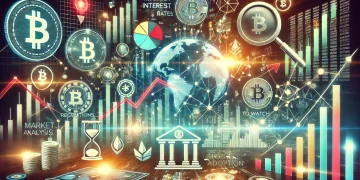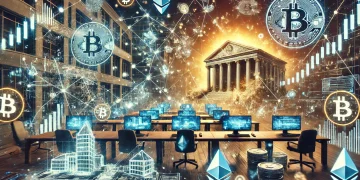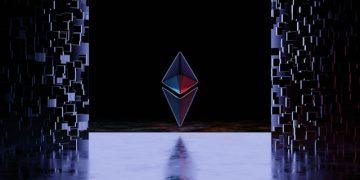In the rapidly evolving world of blockchain technology and digital assets, Non-Fungible Tokens (NFTs) have emerged as a groundbreaking way to represent ownership of unique digital items. As the popularity of NFTs continues to soar, a diverse ecosystem of marketplaces has developed to facilitate the creation, buying, and selling of these digital assets. This comprehensive guide will explore the top NFT marketplaces, their unique features, and what you need to know to navigate this exciting new frontier of digital ownership.
Table of Contents
- Understanding NFT Marketplaces
- Top NFT Marketplaces
- Factors to Consider When Choosing an NFT Marketplace
- The Future of NFT Marketplaces
- Conclusion
Understanding NFT Marketplaces
NFT marketplaces are platforms that allow users to mint, buy, sell, and trade Non-Fungible Tokens. These digital marketplaces serve as the primary interface between creators, collectors, and traders in the NFT ecosystem. They provide the necessary infrastructure for:
- Minting NFTs: The process of creating a new NFT by tokenizing a digital asset on a blockchain.
- Listing NFTs: Allowing creators and owners to showcase their NFTs for sale.
- Buying and Selling: Facilitating transactions between buyers and sellers.
- Trading: Enabling users to exchange NFTs with each other.
- Auctions: Hosting auctions for high-value or rare NFTs.
Each marketplace has its own unique features, target audience, and supported blockchain networks. Let’s explore some of the top NFT marketplaces in detail.
Top NFT Marketplaces
OpenSea
Website: OpenSea.io
OpenSea is widely regarded as the largest and most diverse NFT marketplace. Launched in 2017, it has become a go-to platform for a wide range of digital assets, including art, music, domain names, virtual worlds, trading cards, and more.
Key Features:
- Supports multiple blockchains (Ethereum, Polygon, Klaytn)
- Offers a user-friendly interface for minting NFTs
- Provides a wide variety of categories and collections
- Allows for both fixed-price sales and auctions
- Offers a gas-free marketplace on Polygon
Pros:
- Vast selection of NFTs
- Easy to use for beginners
- High liquidity due to large user base
Cons:
- High gas fees on Ethereum network
- Less curation compared to specialized platforms
Rarible
Website: Rarible.com
Rarible is a community-owned NFT marketplace that has gained popularity for its focus on digital art and collectibles. It introduced the RARI token, which allows users to participate in platform governance.
Key Features:
- Community-centric approach with governance token
- Supports lazy minting (no upfront gas fees)
- Offers multiple sale types (fixed price, timed auction, open auction)
- Provides verified accounts for artists
Pros:
- Active community involvement
- User-friendly interface
- Rewards active users with RARI tokens
Cons:
- Lower trading volume compared to OpenSea
- Some concerns about copyright infringement
NBA Top Shot
Website: NBATopsShot.com
NBA Top Shot is a specialized NFT marketplace focused on officially licensed NBA highlights and digital collectibles. It’s built on the Flow blockchain and has gained massive popularity among sports fans.
Key Features:
- Official NBA partnership
- Offers “Moments” (video highlights) as NFTs
- Provides “Challenges” and rewards for collectors
- Uses the Flow blockchain for faster, cheaper transactions
Pros:
- Mainstream appeal to sports fans
- Lower entry barrier compared to other NFT platforms
- Official licensing ensures authenticity
Cons:
- Limited to NBA-related content
- Centralized platform with less emphasis on decentralization
SuperRare
Website: SuperRare.com
SuperRare positions itself as a curated marketplace for digital art, focusing on high-quality, unique pieces from selected artists.
Key Features:
- Highly curated selection of digital art
- Emphasis on 1/1 editions
- Provides detailed provenance and history for each piece
- Offers a social media-like interface for artists and collectors
Pros:
- High-quality, curated artworks
- Strong focus on artist recognition
- Active community of digital art enthusiasts
Cons:
- Higher entry barrier for artists due to curation process
- Generally higher prices compared to more open marketplaces
Nifty Gateway
Website: NiftyGateway.com
Nifty Gateway, owned by Gemini, is known for its high-profile artist collaborations and “drops” of limited-edition digital artworks.
Key Features:
- Curated drops from well-known artists and brands
- Supports credit card purchases
- Offers custodial wallet solution
- Provides secondary market for trading
Pros:
- Easy onboarding for crypto newcomers
- High-profile collaborations increase visibility
- Custodial solution reduces complexity for users
Cons:
- Limited to curated drops and selected artists
- Centralized platform with less emphasis on decentralization
Foundation
Website: Foundation.app
Foundation is an invitation-only platform that focuses on supporting emerging artists and fostering a community around digital creativity.
Key Features:
- Invitation-only platform for artists
- Uses a unique auction model for primary sales
- Emphasizes community building and artist support
- Offers a clean, minimalist interface
Pros:
- High-quality, curated artworks
- Strong community focus
- Unique auction model can lead to higher artist earnings
Cons:
- Limited access for new artists
- Lower trading volume compared to larger platforms
Binance NFT Marketplace
Website: Binance.com/en/nft
Launched by the popular cryptocurrency exchange Binance, this marketplace leverages the company’s large user base and low-fee structure.
Key Features:
- Integrated with Binance ecosystem
- Supports multiple blockchains (Binance Smart Chain, Ethereum)
- Offers both curated and open markets
- Provides a launchpad for NFT projects
Pros:
- Low transaction fees
- Large potential audience from Binance users
- Strong security and infrastructure
Cons:
- Newer platform with less established track record in NFTs
- More centralized compared to other marketplaces
Axie Infinity Marketplace
Website: Marketplace.axieinfinity.com
This marketplace is specific to the popular blockchain game Axie Infinity, allowing players to buy, sell, and trade game-related NFTs.
Key Features:
- Dedicated to Axie Infinity game assets
- Integrated with game ecosystem
- Supports breeding and trading of Axies (game characters)
- Uses Ronin sidechain for faster, cheaper transactions
Pros:
- Seamless integration with Axie Infinity game
- Active community of players and traders
- Lower transaction costs due to Ronin sidechain
Cons:
- Limited to Axie Infinity-related NFTs
- Requires understanding of game mechanics
Factors to Consider When Choosing an NFT Marketplace
When selecting an NFT marketplace, consider the following factors:
- Blockchain Compatibility: Ensure the marketplace supports the blockchain network you prefer (e.g., Ethereum, Flow, Binance Smart Chain).
- Fees: Compare minting fees, transaction fees, and any platform-specific charges.
- User Interface: Look for a platform with an intuitive, easy-to-use interface, especially if you’re new to NFTs.
- Community and Audience: Consider the size and engagement of the platform’s user base, particularly if you’re looking to sell NFTs.
- Curation and Quality: Decide whether you prefer a curated platform with higher-quality assets or an open marketplace with more variety.
- Support for Creators: If you’re an artist, look for platforms that offer tools and support for creators, such as easy minting processes or marketing assistance.
- Security and Reputation: Research the platform’s security measures and track record in the NFT space.
- Payment Options: Check if the platform supports your preferred payment methods, including cryptocurrency and fiat options.
- Specialization: Consider whether you want a general marketplace or one that specializes in specific types of NFTs (e.g., art, sports, gaming).
- Additional Features: Look for unique features that align with your goals, such as lazy minting, fractional ownership, or governance tokens.
The Future of NFT Marketplaces
As the NFT ecosystem continues to evolve, we can expect to see several trends shaping the future of NFT marketplaces:
- Increased Interoperability: Future marketplaces may offer better integration across different blockchain networks, allowing for seamless trading of NFTs minted on various platforms.
- Enhanced Social Features: We may see more social media-like features integrated into NFT marketplaces, fostering stronger communities around digital assets.
- Improved Sustainability: As environmental concerns grow, marketplaces may focus on more energy-efficient blockchain solutions or carbon offset programs.
- Greater Specialization: While general marketplaces will likely continue to dominate, we may see more niche platforms catering to specific industries or types of digital assets.
- Integration with DeFi: NFT marketplaces might increasingly integrate with decentralized finance (DeFi) protocols, enabling new financial products based on NFTs.
- Augmented and Virtual Reality Experiences: As metaverse concepts gain traction, NFT marketplaces may incorporate AR and VR technologies for immersive viewing and trading experiences.
- Improved Verification and Authenticity Measures: To combat fraud and copyright infringement, marketplaces will likely develop more sophisticated verification processes.
Conclusion
NFT marketplaces have become the cornerstone of the burgeoning digital asset economy, providing creators, collectors, and traders with platforms to participate in this revolutionary technology. From general marketplaces like OpenSea to specialized platforms like NBA Top Shot, the diverse ecosystem of NFT marketplaces offers something for everyone.
As you explore the world of NFTs, remember to consider factors such as fees, community, and platform features when choosing a marketplace. Whether you’re an artist looking to mint your first NFT or a collector searching for rare digital assets, understanding the landscape of NFT marketplaces is crucial to navigating this exciting new frontier.
The future of NFT marketplaces promises even greater innovation, with increased interoperability, enhanced social features, and integration with emerging technologies. As the NFT space continues to evolve, staying informed about the latest developments in marketplaces will be key to making the most of the opportunities in this dynamic digital ecosystem.























